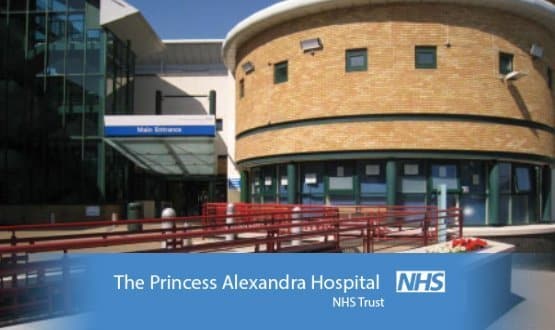Harlow hospital pays £1.8m EPR-related fine
- 9 May 2016

The Princess Alexandra Hospital NHS Trust has paid a £1.8 million fine for multiple breaches of the 52-week target for treating patients, which it put down to problems with its implementation of the Cosmic electronic patient record.
Digital Health News reported in October 2015 that the trust was challenging the fine as the breaches were not due to a failure to treat patients in time, but due to “ongoing issues relating to technical faults in Cambio.”
However, Princess Alexandra has confirmed to Digital Health News that it has now been paid.
A spokesperson added that the trust is no longer breaching the 52-week wait.
However, board papers reveal it is still failing to achieve the national 92% target for 18-week referral to treatment times for patients, partly because of its failure to fully adopt the use of its EPR.
Papers for a 28 April board meeting say the Harlow trust aimed to deliver 91% RTT by the end of March and 92% by end of April, but only achieved 86% by the end of March.
One of the key reasons for this is that staff have “still failed – largely in surgery – to fully adopt the use of Cosmic routinely”, the papers say.
This leads to “wrongly attributed clock stops or failure to clock stop. All of which generate costly rework and revalidation”.
The paper says this “loses both income and increases risk of fines. Plus the potential for reputational damage and worst of all potential harm to patients.”
The Princess Alexandra Hospital went live with Cosmic in July 2014 and experienced significant problems with data quality following the migration.
In a statement, the trust and Cambio said these have largely been addressed by working closely together.
“During 2015, a significant amount of work was done to increase the data validation of the RTT information,” it says.
“At Cambio’s recommendation, the trust moved away from their locally defined RTT coding and returned to national codes in order to facilitate a resumption of national reporting in October.
"Cambio worked intensively with Princess Alexandra through the historic activities to correctly re-present them in the national coding.”
The EPR is now live as a patient administration system and is being used in outpatients, A&E, maternity and inpatients, as well as ‘comprehensive care documentation.
PAH is testing previously delivered functionality which did not go live and is holding engagement sessions with a number of services to look at moving them to paper-lite or paper free where possible. The first of these services will be maternity.




